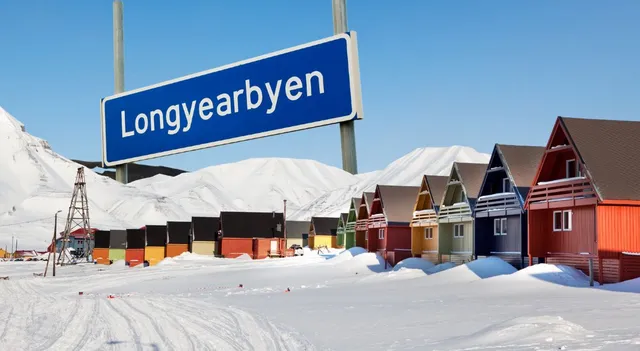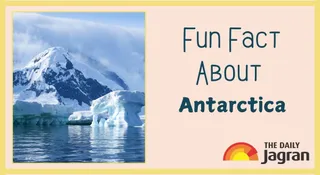- By Ridam Sharma
- Thu, 06 Nov 2025 03:01 PM (IST)
- Source:JND
Town Where It Is Prohibited To Die: Longyearbyen is an Arctic town in Norway's far-north Svalbard archipelago. The place is famous for its unusual rule, and that is no one is allowed to die here. The origin of this highly unusual rule is not due to superstition; the reason is backed by pure science. Majorly, due to extreme Arctic conditions combined with the unique geological stance of this town. Longyearbyen is home to only around 2,700 people, according to the World Population Review report. The town is also the world's northernmost town, and is all about polar bears, darkness, and breathtaking landscapes.
The death is prohibited here, and the main reason for its cause is permafrost. The permafrost is the ground that stays frozen throughout the year. In the 1950s, scientists figured that bodies buried in Longyearbyen's cemeteries were not decomposing due to the ice there. This unusual preservation also meant that bodies, and all viruses and bacteria, with which bodies were contaminated centuries ago, can also remain perfectly intact for decades. For instance, traces of the deadly Spanish flu have been found in corpses almost a century after their burial, raising fears of infectious disease outbreaks.
Also Read: Which City Is The Financial Capital Of India? Know The City That Drives The Nation’s Economy
Also Read: Which Is The First Cashless Country In The World? Know A Fun Fact About This European Nation
This is the reason the Norwegian government decided to shut cemeteries and barred the town from allowing burials, as per the Medium report. In situations where anyone falls gravely sick or is old, that person has to be taken to mainland Norway for their end-of-life treatment, which is a distance of over 2,000 km. Additionally, in the case of a sudden death, bodies cannot be buried locally; they're usually sent away, or cremated under strict regulations.
Recommended For You
In short, the ‘No One Can Die Here’ law of Longyearbyen is due to geographical concerns of the frozen ground, and to maintain public health. The prohibition sounds strange, but this restriction has been necessary for the safety and survival of citizens of one of the most extreme climates in the world.





